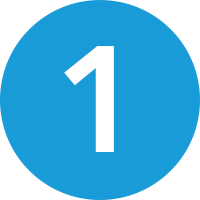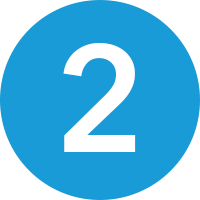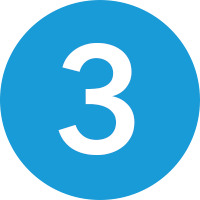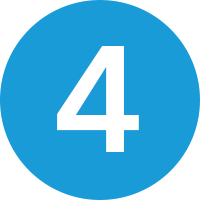Discover how data and insight are your summer superpowers
Sofia Ellmén
Jul 2, 2024
Summer is a seasonal peak for restaurateurs and bar owners around the UK. June, July and August are filled with sport, events and holidaymakers and the warmer weather drives locals and tourists into parks and onto the terraces of bars and restaurants.
Whilst for many businesses, summer is the most profitable season, there may be some clouds on the horizon. The unpredictability of the weather, seasonal events and staff holidays can have a huge impact on the bottom line.
To help to find some practical solutions to the season, we pulled together apanel of expertsfromTenzo,Squareand Angelina Restaurant. Each panelist shared valuable, first-hand advice on how restaurateurs can utilise data for better and more data-driven decision-making.
Finding calm in the chaos
Joshua Owens-Baiglerhas a decade of experience in hospitality and has been running the operations ofAngelina Restaurant, a casual fine-dining restaurant in central London for over 5 years. Serving menus inspired by Italian and Japanese cuisine, the restaurant employs a team of 20+ employees. Despite starting the business with a limited use of technology, he has since implemented bothTenzoand Planday to improve staff management.
“Quite frequently we seem to feel like we’ve got no idea what's going to happen next week. Is it going to rain? Is the sun going to shine? Looking at statistics and looking at software, what it has enabled us to do is make really smart decisions regarding finding patterns even amongst the madness.”- Joshua Owens-Baigler, Director, Angelina Restaurant
Joshua says that by utilising data across his systems, he’s been able to better manage unpredictability and make decisions based on facts rather than feeling. For example, sunny days mean fewer guests for his early evening service and so he schedules the sitting later. The later evening service might then be twice as busy, meaning he might want to schedule more staff for the later hours.
“We can therefore schedule stuff more appropriately and have people start a little bit later on those summer days and prepare them to stay a little bit later, and then similarly cut back on those rainy days, and have an earlier start and an earlier finish.”-Joshua Owens-Baigler
Beyond staffing, software and the use of data, can also help you increase sales.Madeleine Pellico, who leads the Customer Success team atTenzo, had great tips on how you can give sales a boost by having the right people on the floor at busy hours.
“Use the data to see who is upselling the most. So who's getting in that second round of drinks? Who's adding on desserts or supplements, or starters? And who's got the highest ratio or highest spend per guest? Then have that person train and upskill other members of the team as well. Make sure to check your reservations platform and if anybody says that there's a birthday or an anniversary, make sure to offer them a bottle of bubbly as a complimentary service - they're more likely to add on desserts and supplements later on.”- Madeleine Pellico, Team Lead for Customer Success, Tenzo
Managing change when plan A fails
Things don’t always go according to plan so you need to have a back up plan to be able to react quickly.Emily Cox, UK Account Management Lead atSquare, shares her advice for preparing for the unexpected.
“We learned that only around 45% of businesses have a takeaway option. On a rainy day, this is a great option to continue to keep your sales up. Use the data that you already have on your own, with regards to what's popular and keep your sales channels open and keep those customers inspired to potentially order in.- Emily Cox, UK Account Management Lead, Square
Emily also suggests that business owners take a look at what the data tells them about guest behaviour: what menu items are your guests ordering; what drinks are the most popular during sports games or seasonal events; and ask if there are ways to increase sales on those rainy days when you are only half-booked.
“What could you potentially remove or add, based on what you're learning about how your customers are spending. Ensuring that you're never out of stock for a particular drink, if the Euros are upcoming. Lastly, multi-location businesses can get that understanding remotely. You absolutely don't need to be on the ground.”- Emily Cox
4 things to focus on this summer to make it your best one yet
 Use a slower summer to sharpen your business model
Use a slower summer to sharpen your business model
Data and insights definitely help you manage day-to-day operations more efficiently, but it can also work as a source of inspiration for new business ventures. 77% of hospitality businesses plan to expand beyond their current business model in the coming years according to data fromSquare. A slower summer can be a great time to explore new sales channels such as subscription models or loyalty programs, meal kits and even your own merchandise. These can all help create a loyal customer base.
 Listen to your team and learn from them
Listen to your team and learn from them
“Technology is great, but the most important insights you'll have are the things your teams say directly to you.”- William Meadows, Director of UX & Design, Planday
To get through the season you need a highly motivated and happy staff to support you. Taking a few minutes of your day to ask your team how they are and how you can support them, can offer insight into what is happening in the kitchen, bar or front of house when you are not around. Above all, it makes a huge difference for staff wellbeing and job satisfaction.
 When in doubt, use data to back your decisions
When in doubt, use data to back your decisions
Business owners, more often than not, have an emotional attachment to their business. This can lead to decision-making on gut feeling rather than on actual data. You should get to know the data you have access to and ask how you can use it to make better decisions for the business and your staff.
“Even in a group setting, even when there's general consensus or 7 out of 10 people in meetings say that we should do one thing, then very often when we go away, and we look at the statistics, they're saying something different. And I think that if you use statistics to make business decisions, you always have something to refer back to.”-Joshua Owens-Baigler
 Keep your eyes on the prize
Keep your eyes on the prize
It’s one thing to have access to data, and a whole other thing to understand what the numbers and statistics tell you about the business. Before you start to look at what the statistics and numbers show you, ask yourself; what is my number one or top three goals for the business. By asking this question, you allow yourself to narrow your focus on exactly those numbers that help you achieve your goal.
“I want to see our sales grow by 5% and in order to achieve this goal, what levers are we currently using? Are we looking at menu profitability? Are we looking at incentivising staff for upsells? Are we looking at keeping costs down and wastage really low? What are we doing to achieve these things and then start thinking about the different groups that need to see these levels of data in order to make that happen.”- Madeleine Pellico
Unlock your summer superpowers
Watch the full panel discussionhere.
Join the Single Biggest Shift toward staff retention and read tips from hospitality experts on how to become a top employer
Join the movement